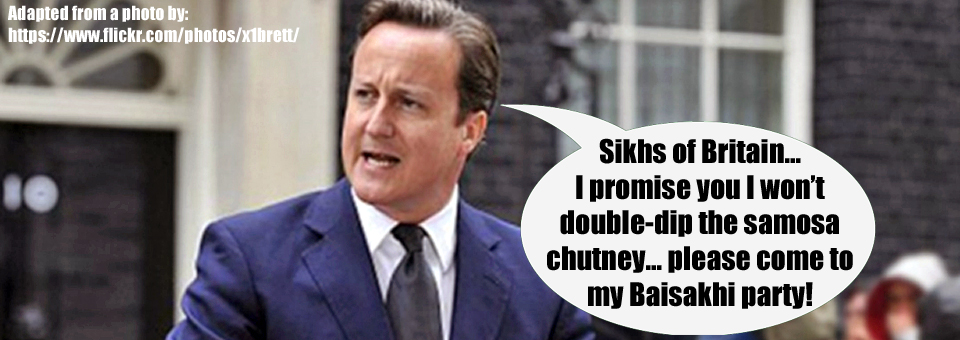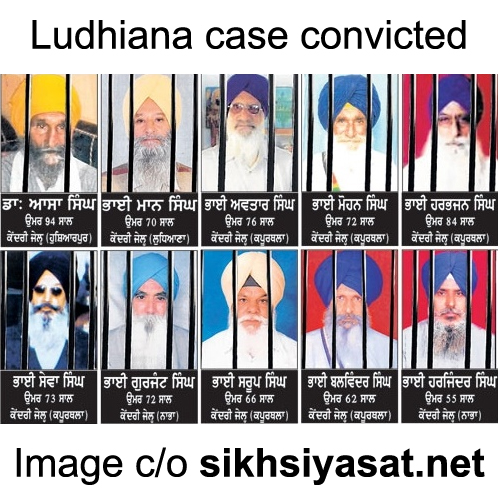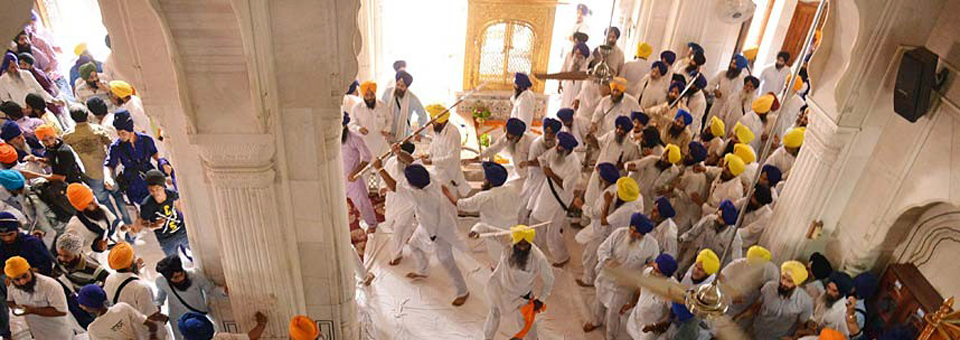In the last few days, the UK-based Network of Sikh Organisations (NSO) issued a press release urging all Sikhs to boycott the annual Baisakhi celebration at Downing Street. The NSO, chaired by Lord Indarjit Singh of Wimbledon, has issued the statement in response to the continuing fall-out from released documents earlier this year which proved that the then-UK Government assisted the Indian State’s invasion of Darbar Sahib, Amritsar in 1984. Whether the boycott will be adhered to by Sikh organisations and personalities in the UK is yet to be seen – few have commented on it over the weekend – but the statement by the NSO is welcoming in that it highlights the largely passive role which Sikhs have taken on in their relationship with the British establishment in recent decades. Might this herald the start of more effective political engagement by UK Sikhs?
Throughout March, evidence that the British Government had colluded with the Indian Government to plan and invade the Sikh centre of Darbar Sahib at Amritsar in 1984 became the subject of debate in the Houses of Parliament. No matter how small the extent to which ‘advice’ was provided, questions posed by Lord Indarjit Singh in the House of Lords and by Adam Holloway MP amongst others in the House of Commons have not been addressed satisfactorily say the NSO. In their press release issued just before the weekend, they highlighted the inadequacy of the response given by Conservative Peer and Senior Minister of State at the Foreign and Commonwealth Office Baroness Sayeeda Warsi, as well as the sheer patronising response of the Prime Minister himself, David Cameron.
The sad reality is that the boycott is unlikely to be met with universal support which is what is required for it to have the desired impact. This is because some Sikhs who ignore the invitation to share in samosa-chaat and concentrated glasses of orange juice with the powers-that-be in Downing Street, risk doing so at the expense of their self-promotion and networking reputations, thus losing face in their intimate circles, not to mention any financial privileges that such association might have provided them with. This type of Sikh is nothing new – one who lives a life devoid of conscience, justifying their actions and associations as being within a system that the rest of us mere mortals don’t understand. In 1984 itself, just days before the curfew was called and the Punjab was shut down to the media, and regular life was put on hold, Akali leaders Gurcharan Singh Tohra, Surjit Singh Barnala and Parkash Badal were flown to Delhi where they met with Prime Minister Indira Gandhi. What was discussed we don’t know, but surely it is no coincidence that they were amongst those who survived the onslaught into the Darbar Sahib complex and profited amidst the vacuum of Sikh leadership in the decades that have followed.
If the NSO boycott is to have any value it must be categorically declared by other Sikh organisations and personalities, as well as advanced by Lord Indarjit Singh in the mainstream press and media where he is a regular contributor. But in my opinion we have the opportunity here to do something of the utmost importance: to remind the common Sikh of our collective duty to engage actively with the society in which we live and to make a return to the ideals imparted by the House of Guru Nanak. It is our responsibility, as exemplified by our Guru centuries ago, to concern ourselves with the ills and injustices that surround us, not just internationally, but at a national, regional and local level too. Just as the founder of the Sikh way of life spoke out against the first Mughal Emperor Babur, he also encountered Malik Bhago and Bhai Lalo, drawing attention to the inequality that existed within the local community; the Guru may have travelled far and wide, but also established cities and towns, tilling the soil and building a platform from which a greater civilisation could come to be. We must take this opportunity, at any level, to readdress what it is that we as Sikhs hold of importance; we are far too easily impressed by associations with politicians, celebrities and financial success, which has led to our role as the ‘house-brownies’ who don’t rock the boat and are appeased by validation of our ‘shared-martial-heritage’ with the British.
There are no simple answers to how we should be reacting to these recent events as I depicted in a previous article. However, the NSO call for a boycott is one that I believe should be welcomed as it falls within an idea I vocalised at that time, “That justice does not come from ‘the other’ – the slave master; it comes when the enslaved recognises that they have the power to take it all back.” Discuss this idea in your homes, your circle of friends and in your institutions – the time to sip orange and dip into chutney with those who have no real time for us should come to an end. The time where we congregate, deliberate and decide the path of our future, and our present is here and now.







